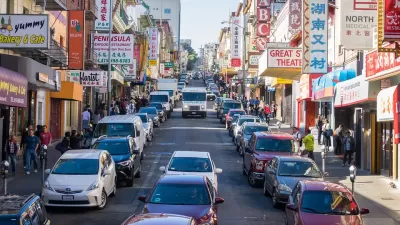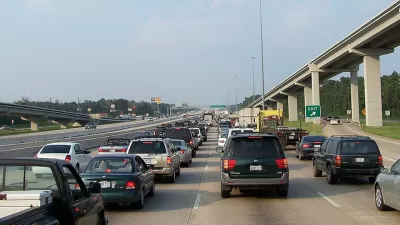Two Atlantic editors investigate why the younger generation is not only driving less but also less likely to purchase homes than their baby boomer parents. Is it temporary, a result of a bad economy, or are these behaviors a permanent shift?
Derek Thompson and Jordan Weissmann, senior and associate editors at The Atlantic, respectively, look at the reduced car-buying, driving, and housing choices of the Millennial generation, and speculate how it will affect the economy in the September, 2012 issue of The Atlantic Magazine.
The auto companies act as if "demand for cars within the Millennial generation is just waiting to be unlocked; that as the economy slowly recovers, today's young people will eventually want to buy cars as much as their parents and grandparents did."
Thompson and Weissmann agree that "the Great Recession is responsible for some of the decline. But it's highly possible that a perfect storm of economic and demographic factors-from high gas prices, to re-urbanization, to stagnating wages, to new technologies enabling a different kind of consumption-has fundamentally changed the game for Millennials."
"When Zipcar was founded in 2000, the average price for a gallon of gasoline was $1.50, and iPhones didn't exist. Since then, it has become the world's largest car-sharing company. Zipcar owes much of its success to two facts. First, gas prices more than doubled, which made car-sharing alluring. Second, smartphones became ubiquitous, which made car-sharing easier."
Next, the editors look at the noticeable urban preferences of the Millennials that involve renting in cities rather than owning in suburbs. That could doom the economic recovery when one considers the importance of housing construction and auto manufacturing in our economy. But the editors offer an alternative outcome.
"Economic research shows that doubling a community's population density tends to increase productivity by anywhere between 6 percent and 28 percent. Ultimately, if the Millennial generation pushes our society toward more sharing and closer living, it may do more than simply change America's consumption culture; it may put America on firmer economic footing for decades to come."
Thanks to Andrew Boone
FULL STORY: The Cheapest Generation: Why Millennials aren’t buying cars or houses, and what that means for the economy

Planetizen Federal Action Tracker
A weekly monitor of how Trump’s orders and actions are impacting planners and planning in America.

Map: Where Senate Republicans Want to Sell Your Public Lands
For public land advocates, the Senate Republicans’ proposal to sell millions of acres of public land in the West is “the biggest fight of their careers.”

Restaurant Patios Were a Pandemic Win — Why Were They so Hard to Keep?
Social distancing requirements and changes in travel patterns prompted cities to pilot new uses for street and sidewalk space. Then it got complicated.

Platform Pilsner: Vancouver Transit Agency Releases... a Beer?
TransLink will receive a portion of every sale of the four-pack.

Toronto Weighs Cheaper Transit, Parking Hikes for Major Events
Special event rates would take effect during large festivals, sports games and concerts to ‘discourage driving, manage congestion and free up space for transit.”

Berlin to Consider Car-Free Zone Larger Than Manhattan
The area bound by the 22-mile Ringbahn would still allow 12 uses of a private automobile per year per person, and several other exemptions.
Urban Design for Planners 1: Software Tools
This six-course series explores essential urban design concepts using open source software and equips planners with the tools they need to participate fully in the urban design process.
Planning for Universal Design
Learn the tools for implementing Universal Design in planning regulations.
Heyer Gruel & Associates PA
JM Goldson LLC
Custer County Colorado
City of Camden Redevelopment Agency
City of Astoria
Transportation Research & Education Center (TREC) at Portland State University
Camden Redevelopment Agency
City of Claremont
Municipality of Princeton (NJ)




























